
 |
CS 635: Advanced Object-Oriented Design & Programming |
|---|
| Template Method | slide # 1 |
Template Method lets subclasses redefine certain steps of an
algorithm without changing the algorithm's structure
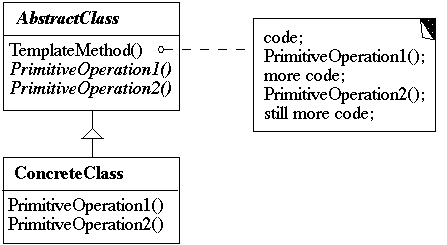
class Account {
public:
void virtual Transaction(float amount)
{ balance += amount;}
Account(char* customerName, float InitialDeposit = 0);
protected:
char* name;
float balance;
}
class JuniorAccount : public Account {
public: void Transaction(float amount) {// put code here}
}
class SavingsAccount : public Account {
public: void Transaction(float amount) {// put code here}
}
Account* createNewAccount()
{
// code to query customer and determine what type of
// account to create
};
main()
{
Account* customer;
customer = createNewAccount();
customer->Transaction(amount);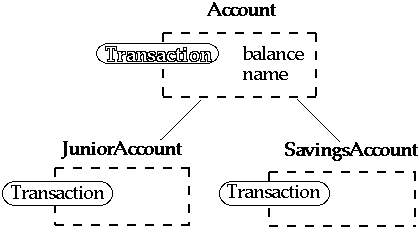
class Account {
public:
void virtual Transaction() = 0;
}
class JuniorAccount : public Account {
public
void Transaction() { put code here}
}
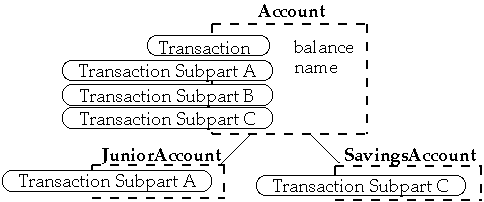
class Account {
public:
void Transaction(float amount);
void virtual TransactionSubpartA();
void virtual TransactionSubpartB();
void virtual TransactionSubpartC();
}
void Account::Transaction(float amount) {
TransactionSubpartA();
TransactionSubpartB();
TransactionSubpartC(); // EvenMoreCode;
}
class JuniorAccount : public Account {
public: void virtual TransactionSubpartA(); }
class SavingsAccount : public Account {
public: void virtual TransactionSubpartC(); }
Account* customer;
customer = createNewAccount();
customer->Transaction(amount);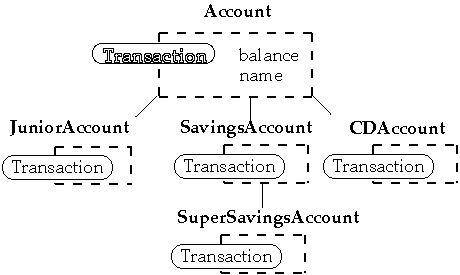
Account* customer; customer = createNewAccount(); customer->Transaction(amount);
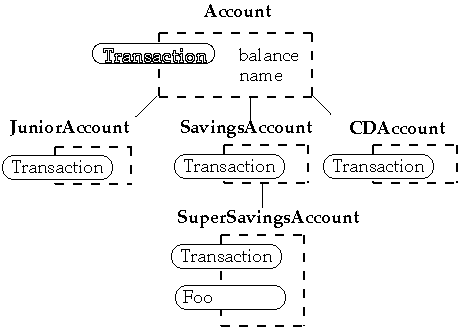
Account* customer;
customer = createNewAccount();
customer->Foo(); // compile error